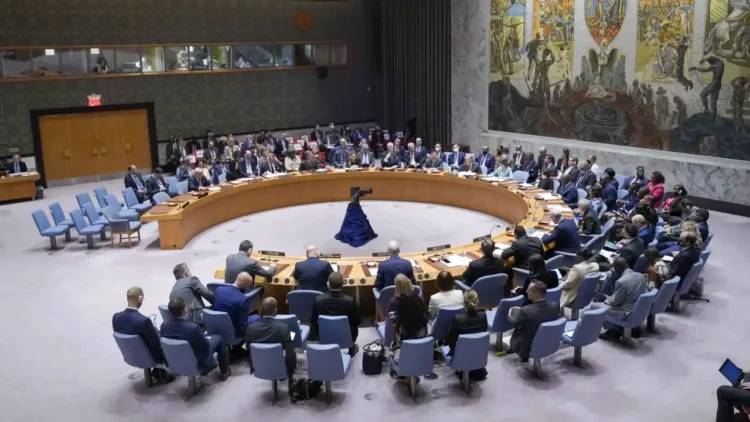Denmark, Greece, Pakistan, Panama, Somalia are set to serve the United Nations Security Council (UNSC) in a secret ballot on June 6, 2024, in the UNGA (United Nations General Assembly) for two years
The intergovernmental organisation 193-member world body is scheduled to vote to elect five countries to serve two-year terms on the council. The ten non-permanent seats in the Security Council on the 15-member council are allotted to regional groups who usually select their candidates but sometimes can’t agree on one. There are no such surprises this year.
Last year Slovenia soundly defeated Russia’s close ally Belarus for the seat representing the East European Regional Group, a vote that that reflected strong global opposition to Russia’s full-scale invasion of Ukraine. This time, the regional groups put forward Somalia for an African state Pakistan for an Asia-Pacific Seat, Panama for a Latin American and Caribbean for two mainly western states.
The five council members elected on June 6, 2024, will start their terms on January 1 replacing those two-year terms end on December 31, such as Mozambique, Japan, Ecuador, Malta and Switzerland. They will join the five-veto wielding permanent members- United States of America, United Kingdom, Russian Federation, France, China and five countries selected last year namely Algeria, Guyana, South Korea, Sierra Leone and Slovenia.
The Security Council is charged with maintaining international peace and security. But because of Russia’s veto power it has been unable to take action on Ukraine and because of close US ties to Israel it has not called for a cessation of hostilities in Gaza. All five countries expected to win seats on June 6, 2024, have served the Security Council, Pakistan for seven times, Panama five times, Denmark four times, Greece twice and Somalia for once.
Virtually every country agrees that almost eight decades after the United Nations was established, the Security Council needs to be expanded and reflect the world in the 21st century and not akin to that of World War-II era reflected now. But 193 countries with national interests, the central question and the biggest disagreement is exactly how. And for four decades, those disagreements have blocked any significant reform of the United Nations most powerful body.



















Comments